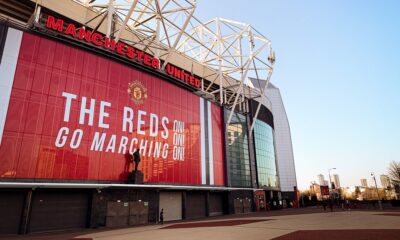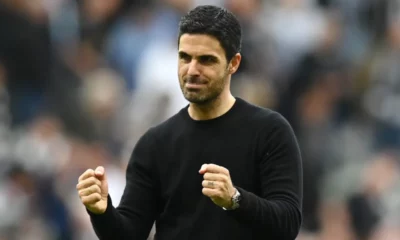Arsenal
Twitter: Good Or Bad For Football?
There can be absolutely no doubt that social media has rapidly developed into a modern, worldwide phenomenon. With its earlier inceptions such as Bebo and MySpace suffering sharp declines in popularity, the frontrunners in the competitive world of soci…
There can be absolutely no doubt that social media has rapidly developed into a modern, worldwide phenomenon. With its earlier inceptions such as Bebo and MySpace suffering sharp declines in popularity, the frontrunners in the competitive world of social networking media now appear to be Facebook and Twitter. Since being launched in July 2006, Twitter has amassed approximately 200 million users, generating over 190 million ‘tweets’ per day.
In recent times Twitter has become a rather hot topic within the footballing world, with people’s opinions seemingly split between whether or not the site is having a negative impact on the game. Indeed for those that bemoan various footballer’s questionable use of Twitter, there is certainly no shortage of examples to highlight their concerns.
Back in July 2009, England striker Darren Bent became embroiled in a Twitter controversy, as he used his personal account on the site to launch a scathing attack on Tottenham Hotspur chairman Daniel Levy. It is understood Bent was very keen on a move to Wearside to join Sunderland but was becoming increasingly frustrated at the delay of the transfer, tweeting: “Sunderland are not the problem in the slightest, do I wanna go Hull City NO. Do I wanna go stoke NO do I wanna go sunderland YES so stop f****** around levy.” Despite his subsequent public apology, Bent’s foul-mouthed rant earned him a hefty fine from Spurs and only seemed to serve to further complicate his transfer away from the club.
We could also point to the more recent example of former Liverpool winger Ryan Babel for irresponsible use of Twitter. Babel was hit with a charge of misconduct from the FA after posting a mocked-up photo of referee Howard Webb in a Manchester United shirt following his team’s 1-0 defeat at Old Trafford in January 2011. Babel also supplied the following caption to accompany his photo: “And they call him one of the best referees? That’s a joke.” Babel drew heavy criticism for calling Webb’s impartiality into question and eventually attempted to justify his rather naive actions by dismissing them as an ‘emotional reaction after losing an important game’.
Manchester United and Republic of Ireland midfielder Darron Gibson’s negative Twitter experience was rather the opposite from those of Bent and Babel, in as much as it wasn’t self-inflicted. Just hours after being encouraged to join the tweeting revolution and gaining over 12,000 followers, Gibson was forced to close his account permanently after receiving waves of abuse from fans of his own club, as well as a small proportion of Northern Ireland fans, who continued to carry a grudge against the youngster after he decided to reject their nation’s advances in order to represent the Republic at international level.
However, for all its supposedly negative effects on football there is a strong case for arguing that, providing it is used with an appropriate degree of maturity and sensibility, using Twitter can effectively enhance a player’s reputation. For example if we look at someone such as Wayne Rooney, overlooking his very recent misdemeanours with a critical fan, communicating via the site has, for the most part, served to present an altogether different and far more positive character to the reckless hothead we see all too often on the pitch.
For players such as Rooney, Twitter can be a useful tool for positive publicity and can bring that personal touch that is almost always absent from a bland media interview, in which players have become accustomed to offering the same repetitive, worn clichés. It has become a real rarity that any high-profile sport stars, particularly footballers, are afforded the freedom to stray away from official party line and express their own opinions and Twitter often offers them the opportunity to do just that, providing of course they engage their brains before their fingers and don’t get too carried away with their 140 characters.
Those firmly in the pro-Twitter camp could also argue the point that at a time when the gulf between fans and mega rich players is enormous, Twitter in fact serves as a useful tool in attempting to bridge that gap. It allows the fans to get a glimpse into the worlds of their favourite stars and gives them a chance to engage with them on a regular basis, as well as getting a refreshing account of their thoughts and opinions.
This is precisely why suggestions of a blanket ban of footballers using Twitter are quite frankly ludicrous and such a ban should never be enforced. By removing this now established link between players and fans, the walls that have been built over the years between the two will be reinforced, which would surely only serve to negatively impact the game and alienate spectators, particularly amongst the younger age groups who populate websites such as Twitter.
In 2010, Ed Adeyeri, Digital Director at Lewis PR suggested that rather than implementing a blanket ban on Twitter for footballers: “A better policy would be to encourage players to make use of sites like Twitter but draw up a series of robust usage guidelines – so, for example, players can’t talk about internal matters or team selection”. This is a sufficient compromise that would allow for players to continue using twitter to interact with supporters, while also helping to eradicate the unnecessary controversies caused by the likes of Darren Bent and Ryan Babel.
There is certainly valid reasoning for suggesting that Twitter can have a negative impact on football and while it is true that the website is occasionally used simply to further extend the inflated egos of some players, I simply cannot help but feel that, strictly from a fans perspective, any outlet that allows supporters to become more aware of the goings on within the game and brings them a step closer to the players can surely only be a good thing.
Submitted by George Flood from Football Friends

















